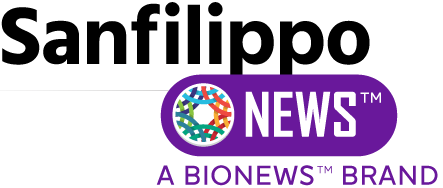Lysogene Announces Goals for Its MPSIIIA Clinical Program

After a pivotal start in 2019 to its clinical program for Sanfilippo syndrome type A, Lysogene has announced its new goals for developing a treatment for the disease, also known as mucoplysaccharydosis IIIA (MPSIIIA).
During the first half of this year, Lysogene has achieved important milestones in its program. For next year, the company is planning to continue patient enrollment in the ongoing Phase 2/3 AAVance trial (NCT03612869), a multicenter, open-label study designed to assess the safety and effectiveness of LYS-SAF302. This second generation gene therapy for the treatment of MPSIIIA is given in a single dose.
Sanfilippo syndrome type A is the most prevalent and severe form of the disease, and occurs due to mutations in the SGSH gene, which provides instructions for the production of an enzyme called sulfamidase.
LYS-SAF302 is a gene therapy that uses a viral vector — known as the AAVrh10 virus — that has the ability to penetrate into the brain and target the central nervous system. Once there, LYS-SAF302 replaces the mutated SGSH gene with a healthy version of the gene.
So far, 10 patients have enrolled in the study, including seven who have already been dosed. Lysogene is expecting to hit its target enrollment goal of 20 participants in the beginning of 2020.
The company also plans to complete its two-year natural history study in MPSIIIA (NCT02746341). In that observational study, people with MPSIIIA are being closely monitored to gather detailed and rigorous information on disease progression. Lysogene is planning to use findings from this study, in combination with published data from previous research, to serve as a control arm for its ongoing AAVance trial.
Lysogene also will launch PROVide, a study based on a new method to gather and record information on LYS-SAF302’s effects.
With PROVide, the company will be able to gather information on treatment effects based on data from qualitative interviews with caregivers. The study also will compile smart phone video recordings documenting children’s disease progression after treatment in the AAVance trial. This information will be an important asset for the efficacy data package of AAVance, which is intended to support LYS-SAF302 registration, pricing and reimbursement.
“Having launched our Phase 2-3 clinical trial in MPS IIIA, enrolled half of the intended study population and completed our two-year natural history study to be used as the control group, so far 2019 has been a year of significant progress,” Karen Aiach, founder, chairman and CEO of Lysogene, said in a press release.
“MPS IIIA is a devastating disease in young children, for which there is no currently approved treatment option. Lysogene, our partner Sarepta and the patient and physician commitment and investment to deliver potentially transformative therapies to these patients is unparalleled,” Aiach added.
The company noted it will make further announcements regarding the progress of LYS-SAF302 in the upcoming months.






